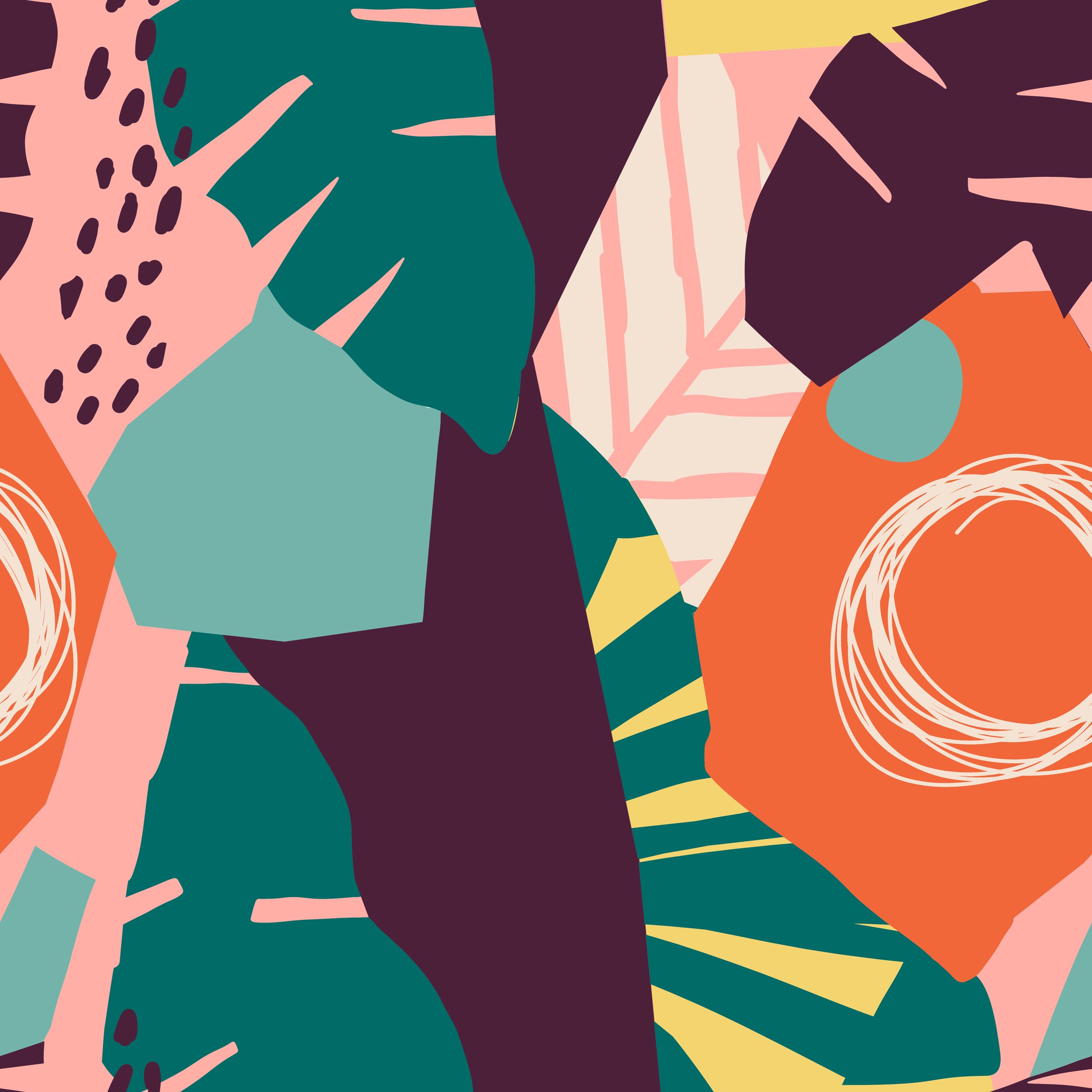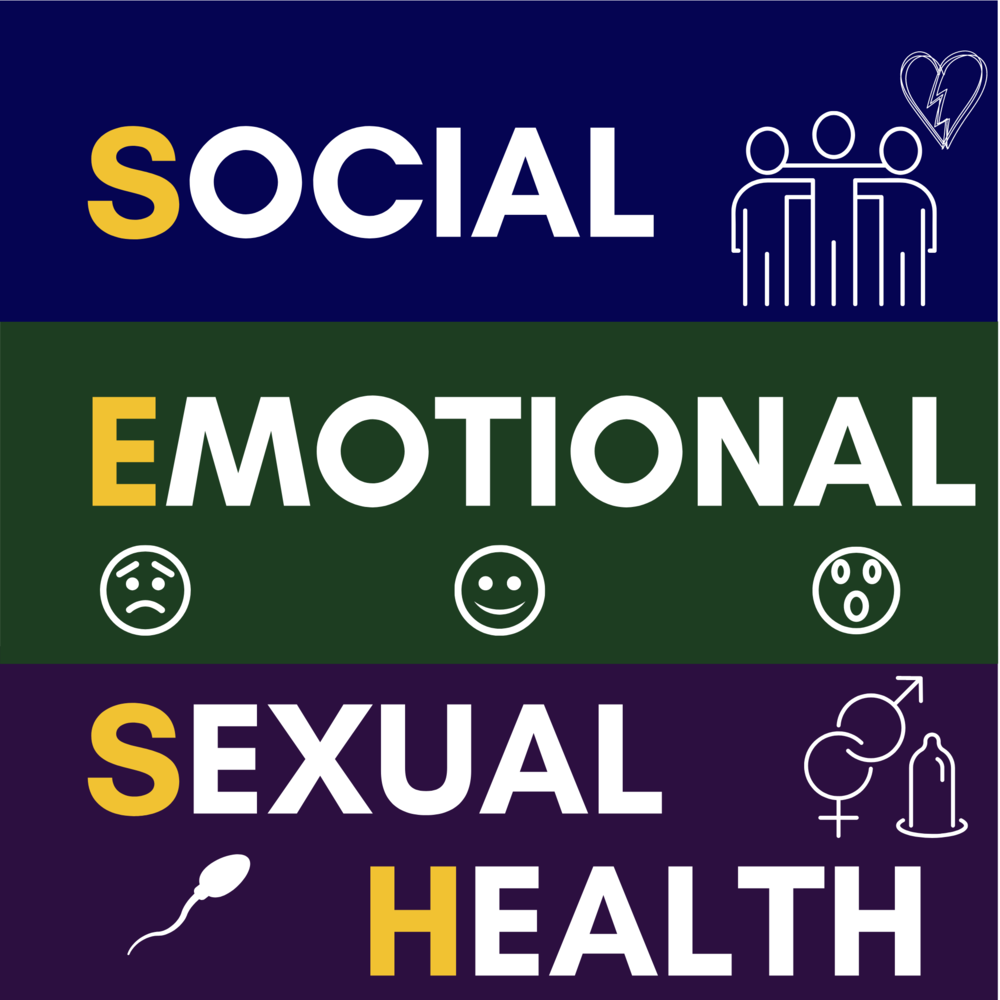
SESH Classes
Social, Emotional, & Sexual Health
MY CURRICULUMIn 2018, after teaching state-sponsored sex education curricula for almost ten years, I was dissatisfied and bored.
So I wrote my own. SESH stands for social, emotional, & sexual health and it takes an SEL approach to sex ed because sexuality does not exist in a vacuum. It exists in a culture, a society, a body, and a mind--sexuality exists in people. That means when we teach about birth control we have to talk about relationships. When we talk about relationships, we teach about consent. When we teach about consent, we need to acknowledge power, privilege, and systems of oppression--it’s all connected, we can’t separate these pieces from each other.
SESH was originally designed as a school-based curriculum where each grade level receives a class in each of the three subject areas each year, facilitating core knowledge & skill acquisition over time. In 2020, after realizing how many students cannot access quality sex education because their school does not offer it, I began offering these same classes online directly to parents & caregivers. I continue to offer customizable SESH programming to schools and organizations.
MY FRAMEWORKThe greatest thing about creating your own curriculum and programming is that it can be reflective and responsive.
My framework reflects my values and responds to my students. I’ll break down the core components of my pedagogical framework here:
Trauma-conscious
This approach means I am aware and informed of how trauma could affect my students’ learning experience. This practice is absolutely vital when we talk with young people about sexuality, relationships, touch, consent, abuse, etc.
During class, this looks like:Normalizing the discomfort or embarrassment students might be feeling
Establishing community agreements among students
Encouraging students to take breaks as needed
Taking movement & breathing breaks together as a class
Helping students make an after-class self-care plan, acknowledging the physical & emotional toll challenging subjects can have
Holding space for students who have experienced abuse or violence
Anti-oppressive
This style of education requires a deep commitment to actively challenging different forms of oppression. I teach about oppression in my classes explicitly and acknowledge the less apparent ways oppression shapes our thoughts & behavior. Sexism, racism, transphobia, ableism, patriarchy, fatphobia, classism, misogyny, white supremacy, homophobia, etc. are all ways that systems & people oppress each other. It is all of our responsibility to unlearn these harmful lessons, dismantle these violent systems, and treat each other with justice & kindness. I help young people learn how to do this.Affirming
Studies show that affirming young people in their identities decreases their likelihood of mental health struggles and suicide. Every class I teach is inclusive of my students’ various gender identities and sexual orientations. When I talk about preventing pregnancy, puberty, & menstruation, I talk about bodies & parts, rather than genders & orientations. My students should always feel seen & included in my classes.Rights-based
Young people have a right to information about sex & sexuality. Whether or not sex education is age-appropriate is about delivery, not about content. Sexuality is an inherent aspect of humanity and I do not practice gatekeeping around sexual health information.Skill-oriented
Every class has a skill component. My objective is for students to leave every class knowing how to do something practical. Whether it’s making an appointment for birth control, putting an unconscious person in the recovery position, or regulating through a panic attack--we focus on real life skill acquisition.
These 5 components make up my pedagogical framework and you will find these values woven throughout every class I teach. They reflect my own personal values but they are also what my students tell me they want. Every year, my students offer detailed feedback on their learning and they tell me they want education that affirms who they are, teaches them how to do things in real life, takes care of their emotions, and helps them effect change. My students come first and they lead the way.
Interactive online classes offer anonymity and practical skills.
FOR PARENTS
I offer one-on-one and small group sex education classes for young people ages 11 and up.
-
Classes are taught live online one-on-one or with a small group of peers—parents & caregivers are asked to give their student/s privacy during class. Capacity is limited to 5 students so everyone has the opportunity to get their questions answered and class material can be tailored to the learners.
The main platform we use is ClickMeeting because it’s optimal for education. It allows students to learn anonymously & securely, offers chat moderation, and has several interactive features like polling, quizzes, surveys, & video integration. Inside ClickMeeting, we also use Pear Deck for interactive questions & videos. If a student uses a school-issued device for class, it’s important to make sure these sites are whitelisted by the school’s network. Three days before class, students receive log-in instructions via email with a unique link & password to enter class. They need to log into class with the email provided during sign-up.
Students can choose to remain anonymous during class. Microphones and cameras are administered by me and are turned off upon entry, students can request to turn them on if they like. Students may also use their initials or a pseudonym as their class username as long as they log in with the email address provided at sign-up. This level of anonymity helps students feel more comfortable asking questions and learning about sensitive topics while making sure our classes stay safe from uninvited visitors.
-
In 2018, after teaching state-sponsored sex education curricula for almost ten years, I was dissatisfied and bored. So I wrote my own. SESH stands for social, emotional, & sexual health and it takes an SEL approach to sex ed because sexuality does not exist in a vacuum. It exists in a culture, a society, a body, and a mind--sexuality exists in people. That means when we teach about birth control we have to talk about relationships. When we talk about relationships, we teach about consent. When we teach about consent, we need to acknowledge power, privilege, and systems of oppression--it’s all connected, we can’t separate these pieces from each other.
SESH was originally designed as a school-based curriculum where each grade level receives a class in each of the three subject areas each year, facilitating core knowledge & skill acquisition over time. In 2020, after realizing how many students cannot access quality sex education because their school does not offer it, I began offering these same classes online directly to parents & caregivers. I continue to offer customizable SESH programming to schools and organizations.
For one-on-one and small group classes, we will meet ahead of time to discuss your goals, restrictions, and priority topic areas for class. Depending on the age of the student/s, I sometimes prefer to meet with parents and students separately, but for younger students, I prefer to meet them together with their parents.
Please contact me with questions.
FOR SCHOOLS AND ORGS
I taught in the classroom for several years before making the shift to online education permanent.
I offer online programming in classrooms to schools & organizations in the U.S. & Canada.
Please get in touch to discuss your school’s or organization’s needs (the earlier the better).
-
Practical Puberty Skills
Gender Identity & Sexual Orientation
Reproductive Anatomy
Dating 101
Internet Safety: Privacy, Predators, & Porn
-
Mental Health
Birth Control Decisions
Substance Use & Vaping
Consent & Safety in Relationships
-
Trainings for youth-serving organizations are highly customizable but topics I’ve taught on include:
Girls’ Health 101Youth Mental Health
LGBTQ+ Terms & Trends
Talking With Youth About Sexuality & Gender
Book a Sales Call
Book a Sales Call
I learned that it matters what you think of yourself and that it’s okay to share your feelings and who you are.
-5th Grade Identity & Inclusion Student
More Feedback from Students









